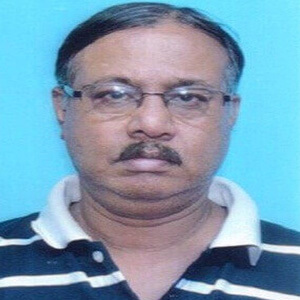Know the science in the worship of Lord Shiva on Mahashivratri
Kailaasarana Shiva Chandramouli, Phaneendra Maathaa Mukutee Zalaalee
Kaarunya Sindhu Bhava Dukha Haaree, Thujaveena Shambho Maja Kona Taaree
Meaning: Oh, Lord Shiva, who is seated on Mount Kailas, whose forehead is decorated with the moon and the king of serpents as a crown, who is the Ocean of Mercy and the remover of delusion, You alone can protect me. I surrender to thee.
 1. Emitting waves of Knowledge, Devotion and renunciation
1. Emitting waves of Knowledge, Devotion and renunciation
Predominantly 'sattva' waves of knowledge, 'raja' waves of devotion and 'tama' waves of Renunciation (Vairagya) are emitted by the 'Shivpindi'. During Mahashivratri, the emission increases by 30 percent.
 2. Emission of subtle vibrations of Chaitanya, Bliss, and Peace
2. Emission of subtle vibrations of Chaitanya, Bliss, and Peace
The 'Shivpindi' emits subtle vibrations of Chaitanya, bliss, and peace. During the Mahashivratri, the emission increases by 25 percent. This helps purify the subtle-body of one who worships the Shivpindi on this day. The 'sun' or the 'moon' channels in the body get activated as per necessity. The capacity to absorb the sattva guna and Chaitanya also increases. Due to the presence of the unmanifest Shiva principle in the Shivpindi and the vibrations of peace emitted, the Shivpindi remains cool and the mind too experiences peace. Worship of Shivpindi with devotion activates the dormant Shiva principle. An offering of puffed rice and milk reaches Lord Shiva in the subtle form.
 3. Receiving the 'Tarak or Marak Tatva' as required
3. Receiving the 'Tarak or Marak Tatva' as required
There is a meeting of the evidence and the unevidenced elements along with the 'tarak and marak tatva' in the Shivpindi. (Tarak = Saviour; Marak = Destroyer). That is how worshipers receive the required element. The temperature of the Shivpindi increases due to the emission of the marak tatva and there one experiences bliss. Similarly, when the tarak tatva is emitted, the temperature drops and one experiences peace and bliss.
Offerings made to Lord Shiva during Rudram Chamkam Yagna reap best benefits in your life. Become Part of Rudram Chamkam Yagna
 Offerings made to Lord Shiva :
Offerings made to Lord Shiva :
Bilvapatra
It contains 2% Shiva Tatva. By offering Bilvapatra to the Shivpindi on Mahashivratri, the manifest Shiva tatva near the stalk of the bilvapatra gets activated. Due to this, waves of Chaitanya, as well as Shiva tatva, are emitted by the bilvapatra. The bilvapatra attracts 20% of the Shiva tatva present in the Shivpindi towards itself.
Application of holy ash (Bhasma)
Tripundra refers to the three horizontal stripes of holy ash applied to the forehead. These stripes symbolize spiritual knowledge, purity, and penance, thus they represent the three eyes of Lord Shiva.
Ritualistic worship of the pindi
Only cold water and bel are offered to Lord Shankar's pindi.
Circumambulation (Pradakshina)
When circum-ambulating one should begin from the left side and continue till the channel of the shalunka from where the water offered during the ritualistic bathing (Abhishek) flows. The flow of a shalunka is not crossed because it affects the formation of semen and the five internal vital energies.
Chanting the Name of Lord Shiva or 'Om Namah Shivaya'
Om represents an unmanifest state beyond the 3 gunas (elements of sattva, raja & tama). We bow to Lord Shiva, from whom Om was created.
'Namaha Shivaya is Shiva's five-syllabled mantra. It means :• na = Foremost deity of all the regions (Lokas).
• ma = Bestower of supreme spiritual knowledge (Gyan) & redeemer of the greatest of sins.
• shi = Benevolent, serene and responsible for initiation by Lord Shiva.
• va = Symbolic of a bull as the vehicle and Vasuki and Vamangi energy (shakti).
• ya = Auspicious abode of Supreme Bliss and Lord Shiva.
It is believed, worshiping Lord Shiva and performing Rudrabhishek on the auspicious occasion of Maha Shivratri has special significance in our life. Performing Rudrabhishek destroy all kind of negativity from our life and also enhance all-round prosperity and happiness in life by the powerful blessings of Lord Shiva.
Enlist Now to become part of Rudram Chamakam Yagna on Mahashivaratri











